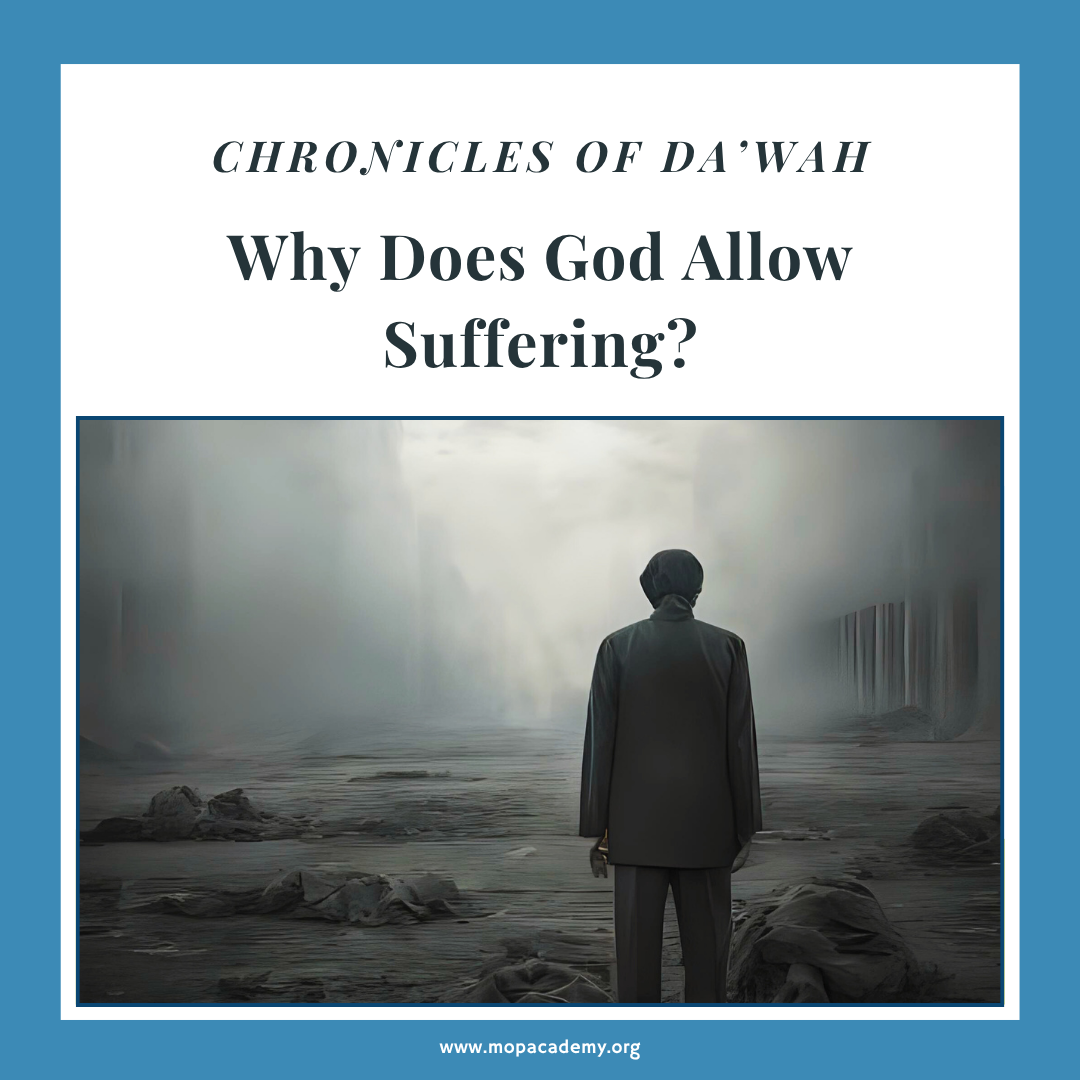
Blog entry by Sam Sam

This is one of the most difficult questions people ask - and one of the most deeply emotional. Whether it’s personal loss, global injustice, or the pain of seeing others suffer, it often leads to a single question:
If God is Merciful and Powerful, why does He allow suffering?
Islam doesn’t avoid this question. It tackles it head-on with clarity, compassion, and a framework that connects our pain to our purpose.
1. Suffering Is Not Proof That God Doesn’t Exist - It’s Proof That This Life Is Not Jannah
In Islamic theology, this world was never meant to be perfect. That’s not what we were promised.
“And We will surely test you with something of fear and hunger and a loss of wealth and lives and fruits, but give good tidings to the patient.” - Surah Al-Baqarah (2:155)
Suffering is not a contradiction in belief - it’s a confirmation that this life is a test. If this world were free of pain, injustice, and hardship, then what would be the point of a Day of Judgement?
2. Pain Reminds Us of Our Need for Allah
Ease can make us forget. Success can breed arrogance. But pain? It humbles us. It softens our hearts. It forces us to call out to the One who is in control.
“Why should Allah punish you if you are grateful and believe?” - Surah An-Nisa (4:147)
Even the Prophet Muhammad ﷺ endured immense suffering: loss of children, betrayal, poverty, and persecution. Yet he remained the most grateful and hopeful of people.
3. Free Will Means That People Can Do Harm - And Be Held Accountable for It
Much of the suffering in this world is not from earthquakes or illness - but from humans hurting humans. Murder, war, abuse, oppression, exploitation - all come from choices.
Allah has given us free will, and with that comes responsibility. If God stopped all evil immediately, that would be the end of human choice - and therefore the end of moral responsibility.
“Whoever does an atom’s weight of good will see it, and whoever does an atom’s weight of evil will see it.” - Surah Az-Zalzalah (99:7–8)
4. Suffering Is a Path to Growth and Reward
In Islam, pain is never meaningless. It elevates. It purifies. And it is rewarded.
The Prophet Muhammad ﷺ said:
“No fatigue, nor disease, nor sorrow, nor sadness, nor hurt, nor distress befalls a Muslim, even if it were the prick he receives from a thorn, but that Allah expiates some of his sins for it.” - Sahih al-Bukhari, Hadith 5641
Islam does not shy away from the reality of suffering. Instead, it gives it a higher purpose. Pain is not pointless. It can be a purification. It can be an elevation. It can be the very path that leads us back to our Creator with a heart full of sincerity.
What appears to be hardship in this life may be mercy in disguise. What seems like unanswered prayers may be redirection to something far greater. And what feels like unbearable loss may become the very means by which Allah raises our rank in Jannah. Allah does not allow suffering except with wisdom, and He never burdens a soul beyond what it can bear. For the believer, suffering is not a sign that Allah has turned away, it’s often a sign that He is drawing you closer.
So the question isn’t simply “Why is there suffering?” but: How will I respond to it? Will I let it refine me, or define me? Will I turn it into worship, or into despair?
For those who choose sabr (patience), tawakkul (trust), and shukr (gratitude), the reward is beyond imagination and the promise of Allah is always true.
“Verily, with hardship comes ease. Verily, with hardship comes ease.” - Surah Ash-Sharh (94:5–6)
Learn More: Messengers of Peace Academy offers free Da’wah training and resources to help you understand and explain topics like this with confidence and compassion.